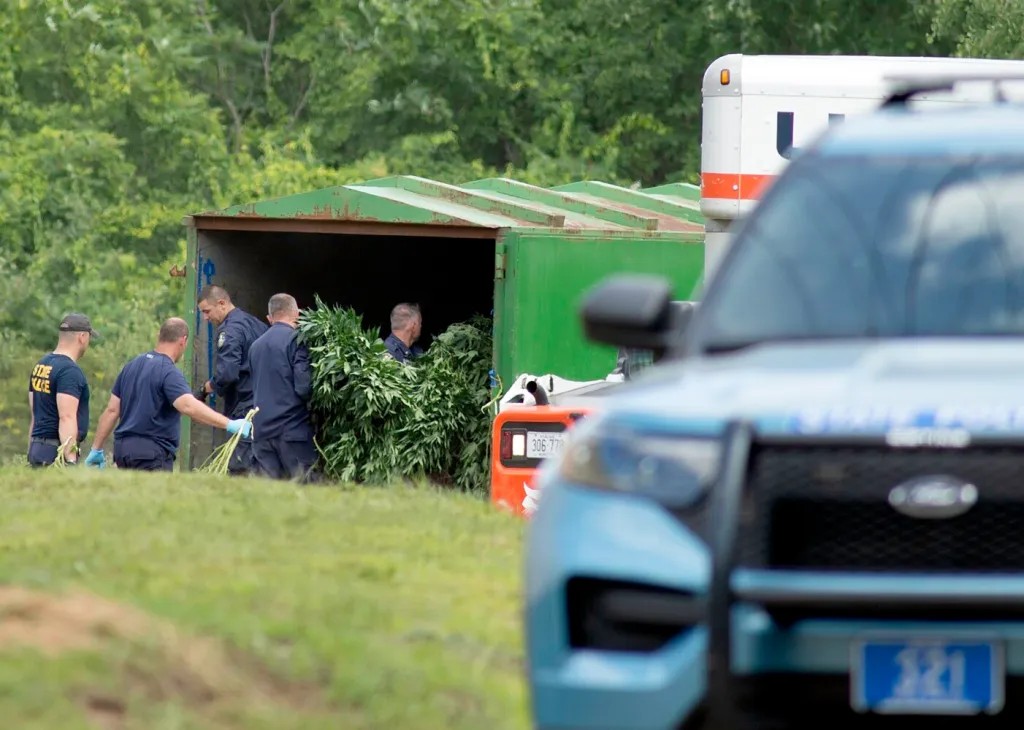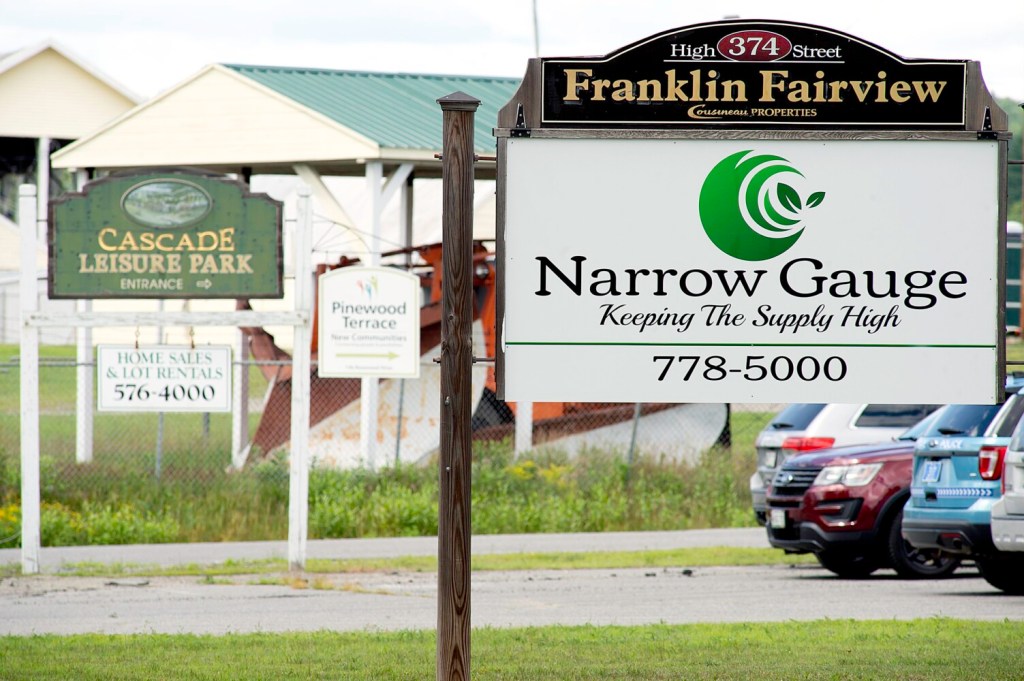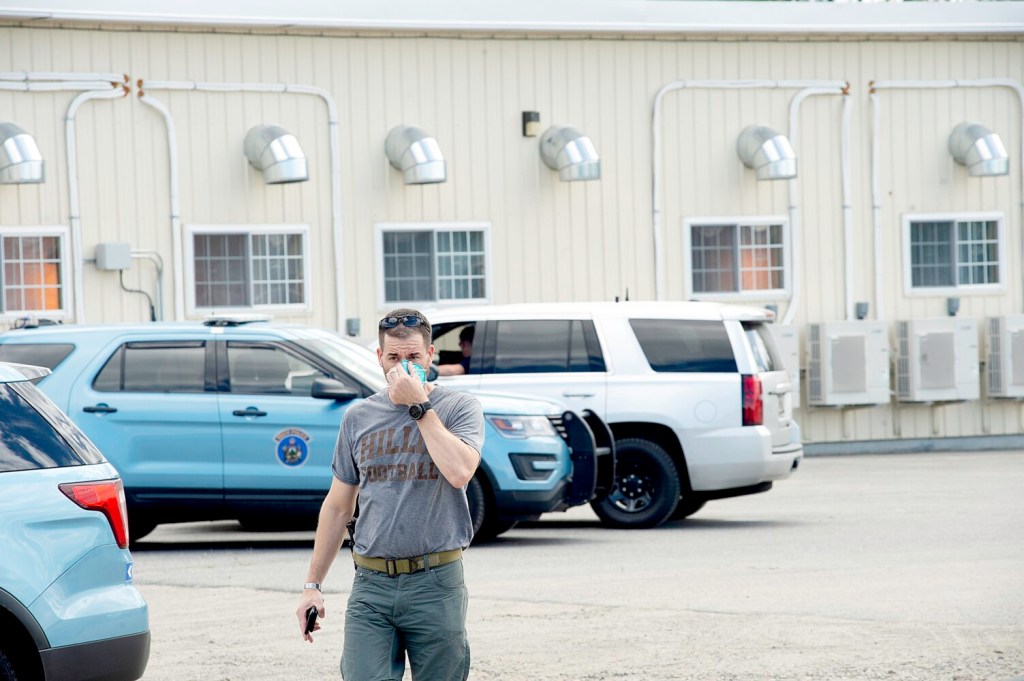
BANGOR — The conviction last week of a Rangeley man on federal marijuana distribution, tax and bank fraud charges leaves some in the Maine cannabis industry worried that their legal, state-licensed operations could face similar scrutiny.
However, prosecutors say that the multimillion-dollar business Lucas Sirois operated in the Farmington area broke state laws, as well as the federal laws he was found guilty of, and that growers and dispensaries that are in compliance have nothing to fear.
Still, the case revived disputes over how federal agencies test cannabis, a technical issue central to the Sirois’ defense and one that spurred protests from some in the industry.
The case is the final one related to the investigation into the Sirois operation, which became public with a series of raids in 2020, including at Narrow Gauge Distributors in Farmington.
It highlights the ongoing tension between Maine law, which regulates the growing and distribution of cannabis, and federal statute, under which those activities are still illegal.
THE CONVICTION
Sirois and his father, Robert, were both found guilty Tuesday of federal charges stemming from the operation, which prosecutors said moved thousands of kilograms of cannabis across New England and took in proceeds of more than $13 million.
Lucas Sirois was convicted of conspiracy to distribute marijuana, possession with intent to distribute marijuana, bank fraud and two counts of tax fraud. Robert Sirois was convicted of conspiracy to distribute marijuana, and acquitted on one count of possession with intent to distribute marijuana.
Assistant U.S. Attorneys Noah Falk and Andrew McCormack said in a Thursday press release that Lucas Sirois led a conspiracy from at least 2016 through 2020 involving industrial grow facilities operated through corporate shell companies.
Eight others were convicted for their roles in the operation, including those who sought to warn Sirois if any law enforcement investigation was launched.
The operation, which produced over 8,000 kilograms of marijuana from one location alone, distributed a significant amount of product in Massachusetts and New Hampshire.
Sirois also falsified financial transactions and misrepresented information to banks to hide income and evade federal taxes, the prosecutors said.

Lucas Sirois faces at least 10 years and up to life in prison and fines of up to $10 million. Robert Sirois, 71, convicted of conspiracy, faces up to 20 years in prison and a $1 million fine.
Sentencing will occur after presentence investigative reports by the U.S. Probation Office, according to the prosecutors’ press release.
THE DEFENSE
Robert and Lucas Sirois are planning to challenge their convictions, with potential appeals to the U.S. Supreme Court and motions under federal criminal procedure rules aimed at overturning portions of the case.
Lucas Sirois’ attorney, Eric Postow of Holon Law Partners in New York, said his client’s conduct was legally sanctioned under Maine’s medical marijuana program.
Postow highlighted what he considers a broader conflict between state-licensed cannabis businesses and outdated federal law and pointed to Sirois’ situation as an example of “systemic rot” created by a mismatch between federal and state law.
“The jury convicted the Siroises of being a licensed and regulated medical marijuana business in a state that legalized and sanctioned their conduct,” Postow said. “It was not about a sprawling criminal enterprise of illicit conduct — all of the evidence simply showed what they were licensed to do. From grow rooms, to distribution, the state of Maine was complicit in their conduct from seed to sale.”
Postow also criticized the foundations of prosecutors’ case, saying investigators wrongly tied Sirois to an early marijuana-for-cocaine conspiracy involving several others. He said prosecutors used the “fabricated connection” to obtain wiretaps and search warrants even though “there was zero credible evidence linking Sirois” to any conspiracy.
The issue disappeared from trial because the government knew from early on that it was prosecuting a licensed medical marijuana business, he said.
Postow also accused investigators of making false statements and engaging in biased law enforcement in sworn affidavits mischaracterizing conversations between Lucas and Robert Sirois.
“There were more false statements made by law enforcement and evidence of biased policing in this case than in any I have ever seen,” Postow said, adding that he is calling on federal and state officials to launch an internal investigation.

The conduct presented to jurors amounted to the routine operation of a state-licensed business, he said.
“The government should feel no pride in a conviction built upon false accusations,” Postow said.
WHY SIROIS’ ACTIVITY WAS ILLEGAL
According to the U.S. Attorney’s Office, Lucas Sirois’ example does not threaten compliant growers and caregivers. Federal courts found that his operation did not comply with Maine’s medical marijuana rules.
The 1st U.S. Circuit Court of Appeals affirmed in earlier rulings that the Siroises were “unable to establish that they complied with Maine’s medical marijuana regime in force during the conspiracy period,” a spokesman for the office said.
Also emphasized in pretrial litigation, and a position upheld on appeal, was that the scale and conduct of the operation went far beyond Maine law. Cannabis meant for cultivation by individual caregivers was pooled and sold through one of Sirois’ companies; caregivers were paid a flat weekly rate regardless of sales; caregivers did not supervise cultivation; and employees applied for some caregivers’ licenses on their behalf.
Also, Sirois sold cannabis to a buyer who did not have a caregiver or patient card or Office of Cannabis Policy credentials, and he did not verify license status, and the operation involved services such as drying, packaging, extract production and sales that only licensed dispensaries are allowed to perform.
Given the opportunity, Sirois could not show that he was following state cannabis laws, a judge ruled.
“(Sirois) has failed to show … that he was in substantial compliance with the Act and its regulations,” according to the 1st Circuit opinion. “The operation as a collective … (and) black market sales … fell well outside what Maine law permitted.”
Sirois was also convicted of tax and bank fraud by directing his accountant to create false transactions among his companies, Lakemont LLC, Sandy River Properties LLC and Spruce Valley LLC, to eliminate over $400,000 in federal taxes owed, and for lying to a local credit union about his business.
Throughout court proceedings, several others were convicted of federal crimes related to the case, including Randal Cousineau, Alisa Sirois, Brandon Dagnese, Kenneth Allen, former Rangeley selectman David Burgess, former Franklin County Sheriff’s deputies Derrick Doucette and Bradley Scovil, and former prosecutor Kayla Alves.
Doucette, Scovil and Alves used their former positions to check whether the operation was under investigation by law enforcement, court records show.
PROTESTING TESTING
One of the Sirois defense team’s core arguments was that the government couldn’t prove the product being grown and distributed by Sirois and his network was actually illegal marijuana.
Sirois’ attorney, Postow, said that under the federal 2018 Farm Bill, cannabis is legal if it contains 0.3% or less of a substance known as delta-9 THC. He argued that the federal testing methods used to identify illegal marijuana are outdated and actually turn some legal strains into illegal strains.
“So, we have a test that does not simply interpret the results and tell you what is in the cannabis plant, it creates the results by converting the cannabinoids from one thing that is not controlled into the very thing that is controlled,” he told the court.
Because the government testing process was flawed, Sirois’ team argued, it did not prove that the plants Sirois was handling were illegal marijuana.
“We don’t know how many other cannabinoids could convert like this,” Postow said, adding that there are some 140 other chemicals present in cannabis plants. “Multitudes of conversions, potentially (because of the testing process).”
Some Sirois supporters, growers and dispensary operators agree the federal testing process is flawed.
Jennifer Belcher, a marijuana advocate, was one of those who spoke out against the trial, criticizing government cannabis testing.
“This case is about the science of the cannabis plant,” Belcher said. She echoed Postow’s sentiment that the DEA’s testing method guarantees results could appear “over the legal threshold every time.”
Such a testing regime puts Maine’s growers and dispensaries at risk, she said.
The U.S. Attorney’s Office, however, said it relied on federally certified laboratory procedures that federal courts have found several times to be valid evidence, according to court documents. Both the district court and 1st Circuit rejected challenges to the admissibility of the test results.
